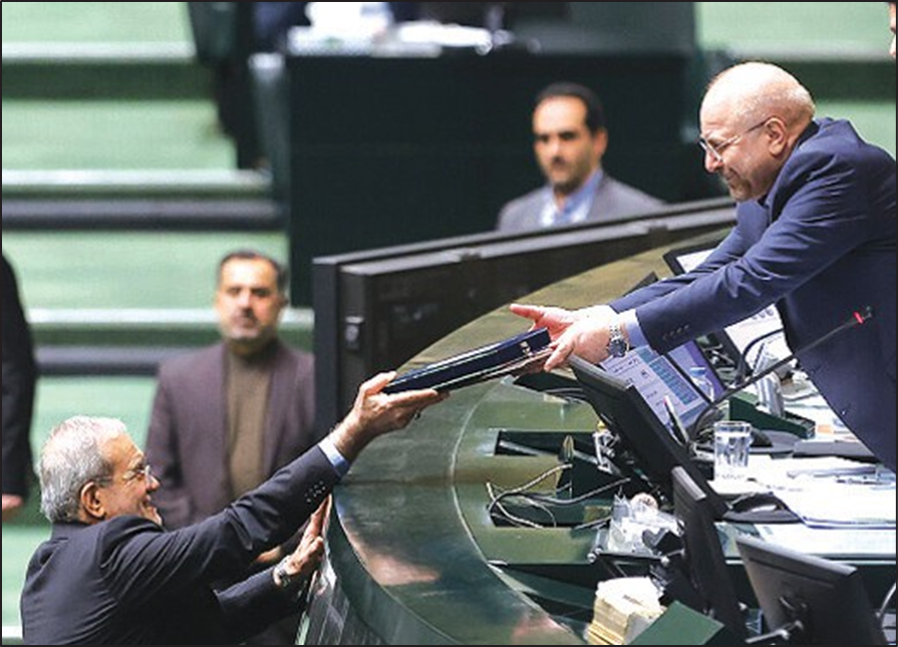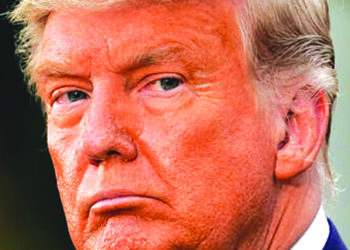and that irritates Supreme Leader Ali Khamenehi because it means the public doesn’t believe the revolts are inspired by the 1979 Iranian revolution as the regime insists.
In a speech last Wednesday to Foreign Ministry officials and Iran’s ambassadors, Khamenehi said it was delusional to think the United States was stage managing the popular uprisings occurring in the Arab world.
Many in Iran, however, believe that all major events are orchestrated and that only the United States is strong enough to have organized so many uprisings in so many countries simultaneously.
Khamenehi said the world’s political structures are undergoing dramatic changes, and “great events are occurring in the region, Europe, and all across the world, which should be monitored with full vigilance.
“In the 1960s, certain developments took place in a number of Arab countries, and Eastern Europe witnessed great events, but current developments in the region and the chain of protests in the West are fundamentally different than those developments in terms of depth and greatness,” he said.
The developments currently unfolding in the world are different than those of the past since they are anti-American and popular in nature and manifest the people’s effective presence on the scene, Khamenehi said.
“Some assume the United States is stage managing these developments behind the scenes, but that is sheer delusion, just as 30 years ago some were under the illusion that the Islamic revolution was engineered by the United States,” he said, clearly peeved.
He said, “The great movement of nations is a sign of their awakening, and this awakening has an Islamic underpinning, according to many undeniable facts.”
This has been the standard Tehran view all through the past year. But Khamenehi added a new element, finally indicating after 10 months that he recognizes that many in Iran simply do not believe what the Iranian government has been saying.
He thus added this new concession: “However, this Islamic awakening does not mean that they all want an Islamic government or approve of the model of Iran’s Islamic government.”
That effectively reversed what Iranian officials have been saying all along that the Arabs want to follow in Iran’s footsteps and adopted clerical government. While granting that point, he still insisted that Islamists will emerge victorious in elections and prove the Islamic nature of the regional revolutions.
And, indeed, moderate Islamists have come in first in the elections in Tunisia and Egypt, But they are not necessarily favorable to Iran. In Tunisia, the leader of the winning party has said repeatedly that he wants nothing to do with the Iranian form of government.
In Egypt, a radical Salafi slate came in second, but the Salafis tend to be staunchly Sunni and very hostile to Shiism.
Khamenehi also criticized the US for adopting what he called a “double-standard” to- ward the developments in Egypt and other countries, adding that any popular, democratic, and patriotic person who comes to power in a country will definitely oppose the United States and the Zionist regime.
That may prove to be true but so far the three countries that have toppled their old regimes Egypt, Tunisia and Libya all changed their votes in the UN last month and no longer supported Iran on its human rights compliance as they did last year.
Khamenehi said the hege-monistic powers’ hostility toward the Islamic Republic has created a number of stumbling blocks that Iran must overcome.
“Islam has been opposing the foundations and principles of hegemony, which are oppression, aggression, and occupation. That is why the global bullies are extremely fearful about the peoples’ inclination toward Islam,” Khamenehi said.
He added that Iran is making steady progress in all areas, although there are still problems to be resolved. But the enemy is seeking to blow weaknesses out of proportion and play down Iran’s achievements, he said.



















